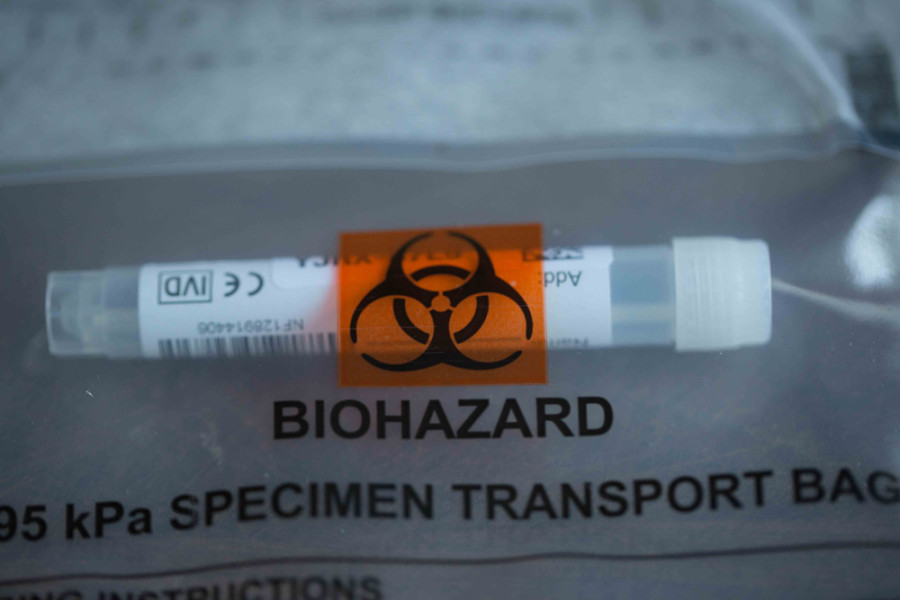Health
Government mulls mechanism to transport clinical samples of infectious diseases
Samples collected for microbiological testing require proper handling at all stages from collection to transportation, storage and processing, doctors say.
Arjun Poudel
The Ministry of Health and Population has been working to devise a special mechanism to ensure proper handling and transport of clinical samples of infectious diseases in all provinces throughout the country.
Officials said that a special mechanism is needed to deal with the growing risk of many emerging and reemerging diseases including highly contagious viruses like coronavirus and monkeypox.
“We are working on a mechanism for proper handling, transport and management of the clinical samples of infected patients,” said Dr Amrit Pokhrel, an official at the Epidemiology and Disease Control Division. “We will forward a proposal to the ministry for further discussion and approval.”
Officials say the ministry has started consultations with all stakeholders, including representatives from the laboratories.
Samples collected for microbiological testing require proper handling at all stages from collection to transportation, storage and processing, doctors say. Health workers involved in the collection of clinical samples, throat swabs in case of Covid, should be trained to minimise the risk of contamination and spread of infection in the communities, its proper storage and safe transportation.
The Health Ministry said that the lack of a mechanism for proper handling, transport and management of the samples does not, however, mean that the samples are not being transported at all.
“Samples collected at the local level and provinces are being transported to the laboratories in Kathmandu following certain rules and guidelines,” said Pokhrel. “We are working to set up a proper mechanism for an even better handling of clinical samples.”
Experts say proper handling of the samples of the suspects is not only important to lessen the spread of the infections in communities but also helps to get accurate results, which ultimately helps in taking timely decisions.
“Clinical samples of suspects are being transported from local units to the district hospital, and from provincial laboratories to the central lab,” said Dr Shrawan Kumar Mishra, chief of Provincial Public Health Laboratory of Madhesh Province. “Formation of such a mechanism also helps to make the authorities concerned more accountable.”
Agencies under the Health Ministry collected swab samples of people infected with Covid from across the country.
In the initial stage, swab samples of suspects were sent to the World Health Organization’s collaborating centres in Hong Kong and India for the confirmation of the virus. The Ministry continued to send swab samples of the infected people abroad for whole-genome sequencing until the National Public Health Laboratory started carrying out testing within the country.
Likewise, the Ministry of Health and Population has decided to send clinical samples of suspected monkeypox cases to the World Health Organization’s collaborating centres in India for confirmation.
Apart from these, dozens of specimens are being transported every day.
“Not all health workers are trained on the techniques for handling samples,” said Mishra. “But they should be trained to avoid exposure to deadly microbes—which could be life threatening in some cases or could easily spill over to communities. They should be provided with necessary equipment and be made accountable.”




 9.7°C Kathmandu
9.7°C Kathmandu















